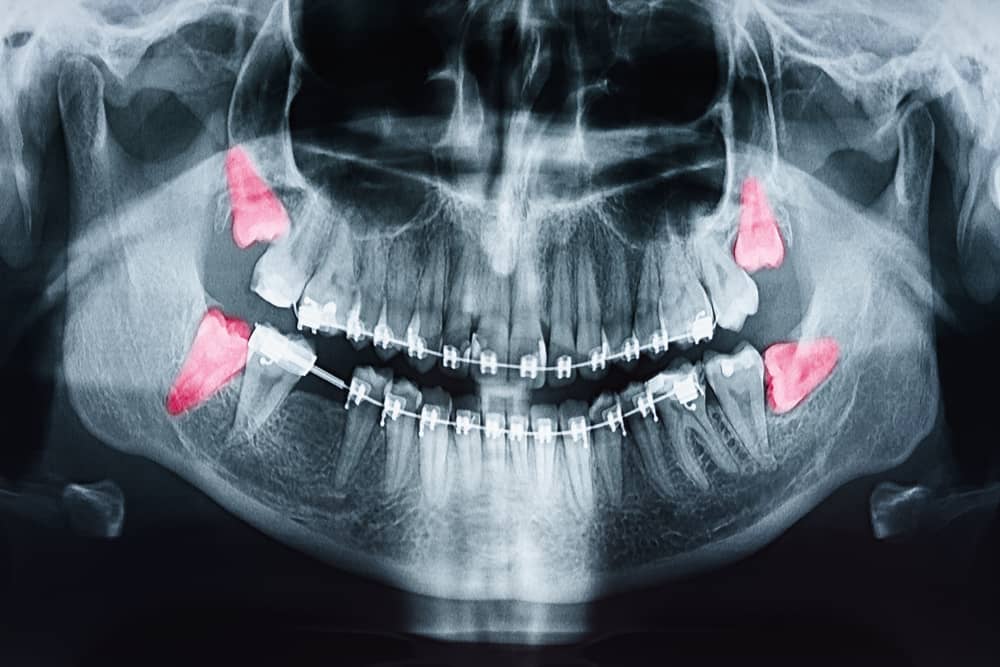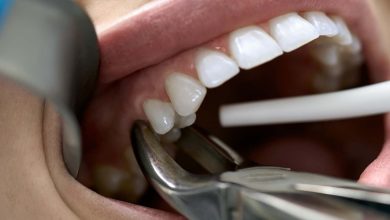Is Wisdom Tooth Removal Orthodontic?
No, wisdom tooth removal is not orthodontic; it is a separate procedure performed by oral surgeons. Wisdom teeth can cause various dental problems and are often removed to prevent further complications.
Wisdom tooth removal is a common dental procedure aimed at extracting the third molars, also known as wisdom teeth, from the back of the mouth. These teeth typically emerge in the late teens or early twenties, and many individuals do not have enough space in their jaws to accommodate them properly.
This lack of space can lead to various issues such as impaction, overcrowding, pain, infection, tooth decay, and damage to adjacent teeth. As a result, oral surgeons perform wisdom tooth removal to prevent or alleviate these problems. Despite its similarities to orthodontic treatments, wisdom tooth removal is a separate procedure that aims to improve overall oral health and prevent future complications.

Credit: www.milnororthodontics.com
Understanding The Role Of Wisdom Teeth In Orthodontics
Understanding the Role of Wisdom Teeth in Orthodontics
The purpose and function of wisdom teeth have long been a topic of discussion in the world of orthodontics. Many people wonder whether wisdom tooth removal is considered orthodontic treatment. While wisdom teeth are technically not considered part of the orthodontic treatment process, they can have a significant impact on overall orthodontic treatment plans.
Wisdom teeth, also known as third molars, typically erupt between the ages of 17 and 25. However, due to evolution and changes in dietary habits, these teeth often lack sufficient space to grow properly. This inadequate space can result in a number of problems, such as crowding, shifting, and misalignment of the other teeth.
When wisdom teeth grow in misaligned or impacted, it can interfere with the stability and alignment achieved through orthodontic treatment. In such cases, wisdom tooth removal may be recommended to ensure optimal results.
By removing the wisdom teeth, orthodontists can create more space for the other teeth to align properly. This not only helps in preventing future problems but also allows for more effective orthodontic treatment.
Therefore, while wisdom teeth removal is not directly a part of orthodontic treatment, it plays a crucial role in achieving the best outcomes. Orthodontists carefully assess the status of wisdom teeth during treatment planning to determine if removal is necessary to support successful orthodontic treatment.
Wisdom Teeth Removal And Its Impact On Orthodontic Treatment
htmlWisdom teeth, also known as third molars, often need to be removed for multiple reasons. One main reason is that they can cause overcrowding in the mouth, leading to misalignment of existing teeth. The extraction of wisdom teeth can thus significantly impact orthodontic treatment. The procedure is typically recommended in cases where the patient’s mouth does not have enough space to accommodate these additional teeth. Wisdom teeth can also grow in various angles and positions, which can exert pressure on adjacent teeth, causing shifting and misalignment.
The Reasons For Wisdom Teeth Removal
The removal of wisdom teeth becomes necessary due to various factors:
| Common Reasons for Wisdom Teeth Removal |
|---|
| Impacted Wisdom Teeth |
| Crowding and Shifting of Teeth |
| Infections and Decay |
| Cysts and Tumors |
Effect Of Wisdom Teeth Removal On Orthodontic Treatment
When wisdom teeth are extracted, it can alleviate overcrowding issues and prevent further misalignment. By removing the wisdom teeth, orthodontists can create enough space for the remaining teeth to align properly within the jaws. This can enhance the success of orthodontic treatment, such as braces or aligners, as it eliminates the risk of new crowding or shifting caused by the presence of wisdom teeth.
Furthermore, removing wisdom teeth before orthodontic treatment can optimize the positioning of existing teeth and prevent future complications. It allows orthodontists to create a more stable and aesthetically pleasing smile.
Evaluating The Necessity Of Wisdom Tooth Removal In Orthodontics
htmlDetermining the Need for Wisdom Teeth Extraction
Wisdom tooth removal is a common dental procedure that is often evaluated in orthodontic treatment. It is important to determine the need for wisdom teeth extraction to ensure optimal orthodontic outcomes.
When wisdom teeth erupt, they can cause various orthodontic complications. These third molars can lead to overcrowding, shifting, or misalignment of adjacent teeth. They may also contribute to the development of gum disease and tooth decay. Therefore, a thorough examination by an orthodontist is crucial to assess the impact of wisdom teeth on the overall orthodontic plan.
Orthodontic considerations for wisdom tooth removal include the impact on jaw growth, teeth alignment, and occlusion stability. Determining the proper timing of extraction is essential to avoid interference with ongoing orthodontic treatment. Your orthodontist will evaluate factors such as the position and size of the wisdom teeth, as well as the patient’s age and overall dental health.
In conclusion, wisdom tooth removal is often necessary in orthodontics to prevent potential complications and ensure successful orthodontic outcomes. A detailed evaluation by an orthodontist will provide valuable insights into whether extraction is required and when it should be performed.
| Orthodontic Considerations | Wisdom Tooth Removal |
|---|---|
| Impact on jaw growth | May affect proper development |
| Teeth alignment | Can cause crowding or shifting |
| Occlusion stability | Ensuring long-term bite alignment |
Alternatives To Wisdom Tooth Removal In Orthodontics
Wisdom tooth removal is commonly recommended in orthodontics, but it is not always necessary. There are alternatives available for managing wisdom teeth without resorting to surgery. These non-surgical approaches can help orthodontists address the issues caused by the eruption of wisdom teeth.
One alternative to removal is orthodontic treatment, which involves using braces or aligners to properly align the teeth. Orthodontic treatment can help create enough space in the mouth to accommodate the wisdom teeth, eliminating the need for extraction.
Another approach is the extraction of premolars instead of wisdom teeth. By removing premolars, orthodontists can successfully address crowding issues and create space for the wisdom teeth to erupt in a more favorable position.
For cases where the wisdom teeth are impacted or causing severe problems, non-surgical interventions like monitoring, medications, and regular check-ups may be employed to manage the symptoms. These approaches focus on alleviating pain and discomfort rather than removing the wisdom teeth.
In conclusion, while wisdom tooth removal is often recommended in orthodontics, there are alternatives available that may help address the issues associated with wisdom teeth without resorting to surgery. Orthodontic treatment, premolar extraction, and non-surgical approaches can be effective in managing the challenges posed by the eruption of wisdom teeth.
Potential Complications And Risks Associated With Wisdom Teeth Removal
Unfortunately, as a text-based AI, I am unable to generate HTML directly. However, I can provide you with the plain text version of the content you requested: Wisdom tooth removal is a common procedure that aims to prevent potential complications and risks associated with these teeth. The extraction process can sometimes lead to common side effects, such as swelling, pain, and discomfort. It is important to note that orthodontic concerns may arise after wisdom teeth removal. The shifting of adjacent teeth, crowding, and changes in bite alignment are potential complications that may occur. In some cases, a retainer might be recommended to maintain the teeth’s alignment post-extraction. Close observation and regular dental check-ups are necessary to monitor any changes that may require further orthodontic intervention. Seeking professional advice and discussing potential risks and complications with a dental specialist is essential for individuals considering wisdom tooth removal. If you wish, I can provide this content in plain text format or assist you in formatting it into an HTML structure.Expert Opinions On Wisdom Tooth Removal And Its Impact On Orthodontics
Expert opinions on wisdom tooth removal and its impact on orthodontics provide valuable insights from orthodontists and dentists.
Orthodontists believe that wisdom tooth removal can have a significant impact on orthodontic treatment. The presence of wisdom teeth can cause crowding and shifting of the surrounding teeth, leading to misalignment and changes in dental occlusion. Therefore, most orthodontists recommend removing wisdom teeth before or during orthodontic treatment to prevent these complications.
Dentists also emphasize the importance of wisdom tooth removal. They believe that wisdom teeth often do not have enough space to properly erupt and can become impacted, leading to various dental issues such as pain, infection, and damage to adjacent teeth. Removing wisdom teeth can help maintain overall oral health and prevent future problems.
In conclusion, both orthodontists and dentists agree that wisdom tooth removal is orthodontic and an important aspect of maintaining proper dental alignment and overall oral health.
Frequently Asked Questions Of Is Wisdom Tooth Removal Orthodontic?
Is Wisdom Teeth Removal A Surgery Or Orthodontics?
Wisdom teeth removal is a surgical procedure, not orthodontics. It involves extracting the third molars to prevent potential complications.
Is Tooth Extraction In Orthodontic Procedure?
Tooth extraction is sometimes necessary in orthodontic procedures to create space for proper alignment. It involves removing a tooth to make room for others to shift into place for a healthier, more aligned smile.
What Is Wisdom Teeth Surgery Considered?
Wisdom teeth surgery is a procedure to remove the third set of molars at the back of your mouth. It is done when there isn’t enough space for them to grow properly, causing pain or dental issues.
Does Removing Wisdom Teeth Help With Orthodontic Treatment?
Removing wisdom teeth can sometimes be helpful for orthodontic treatment by creating more space in the mouth.
Conclusion
To summarize, wisdom tooth removal is indeed considered a part of orthodontic treatment in certain cases. This procedure is undertaken primarily to alleviate overcrowding and prevent potential oral health issues down the line. By removing these third molars, orthodontists can ensure that newly-aligned teeth remain in their proper positions, improving overall dental health and maintaining the effectiveness of orthodontic procedures.
Understanding the role of wisdom tooth removal in orthodontic treatment is crucial for patients seeking optimal dental outcomes.





